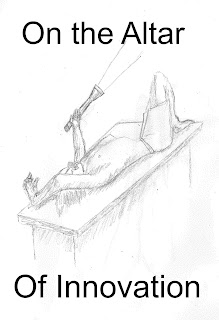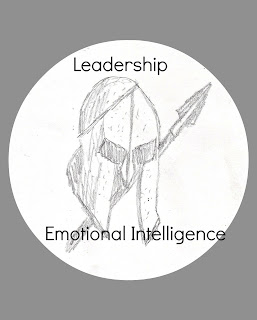Perception is a powerful way to create
opportunities. It is so powerful that
it can change lives and spark opportunities
in abundance. Entrepreneurship is about perceiving differences and then capitalizing
on those differences through applicable market solutions. Perception is created by years
of hard work that culminates into a moment of clarity and innovative inspiration.
Entrepreneurial insight is derived from connecting lots of information together in a way that creates new products or services. This development relies on experience with the product, exploring uses of the product, and finding ways to improve the product. When education, experience, motivation come together, a new perception is created that leads to innovation.
Perception is not a passive process and requires the full engagement of the individual. Finding innovative market solutions relies on gathering and interpreting information. Information can come from formal research or experimentation with different solutions. The more someone is familiar with a product or issue, the more they can perceive areas of improvement.
Entrepreneurship actively interprets information. People assume that the body takes in information from its senses and passively records that information without interpretation. Perception is strongly influenced by experience, education, cultural values that interpret information from the body’s sensory receptors (Curry, Meyer, & McKnney, (2006). Our past experiences help us create meaningful use of information.
Two people can look at the same problem and see different solutions precisely because they are interpreting information differently. Entrepreneurs have developed cognitive models that allow them to find potential solutions through a process of connecting and deconstructing information to find similarities among elements. Reconstructing elements creates new products and services.
The problem-solving model they use is learned over years to create an effective approach. This is one reason success results from years of failure. Failure is only part of the learning process of establishing a successful model. Once the model has been developed it can be applied to many other locations with higher rates of success. Thomas Edison was invented thousands of products based upon the effectiveness of his model.
The secret of entrepreneurship rests in perceiving things in new ways and finding that which no one else has yet seen. It is a process of turning the unseen into the seen. Capitalizing on the perception requires the ability to find value in the solutions and market those solutions to others. Once an effective mental model has been built it will continue to use successful processes to detect new problems and find solutions that lead to innovation.
Curry, D., Meyer, J. & McKnney, J. (2006). Seeing versus perceiving: what you see isn’t always what you get. Professional Safety, 51 (6)
Entrepreneurial insight is derived from connecting lots of information together in a way that creates new products or services. This development relies on experience with the product, exploring uses of the product, and finding ways to improve the product. When education, experience, motivation come together, a new perception is created that leads to innovation.
Perception is not a passive process and requires the full engagement of the individual. Finding innovative market solutions relies on gathering and interpreting information. Information can come from formal research or experimentation with different solutions. The more someone is familiar with a product or issue, the more they can perceive areas of improvement.
Entrepreneurship actively interprets information. People assume that the body takes in information from its senses and passively records that information without interpretation. Perception is strongly influenced by experience, education, cultural values that interpret information from the body’s sensory receptors (Curry, Meyer, & McKnney, (2006). Our past experiences help us create meaningful use of information.
Two people can look at the same problem and see different solutions precisely because they are interpreting information differently. Entrepreneurs have developed cognitive models that allow them to find potential solutions through a process of connecting and deconstructing information to find similarities among elements. Reconstructing elements creates new products and services.
The problem-solving model they use is learned over years to create an effective approach. This is one reason success results from years of failure. Failure is only part of the learning process of establishing a successful model. Once the model has been developed it can be applied to many other locations with higher rates of success. Thomas Edison was invented thousands of products based upon the effectiveness of his model.
The secret of entrepreneurship rests in perceiving things in new ways and finding that which no one else has yet seen. It is a process of turning the unseen into the seen. Capitalizing on the perception requires the ability to find value in the solutions and market those solutions to others. Once an effective mental model has been built it will continue to use successful processes to detect new problems and find solutions that lead to innovation.
Curry, D., Meyer, J. & McKnney, J. (2006). Seeing versus perceiving: what you see isn’t always what you get. Professional Safety, 51 (6)





